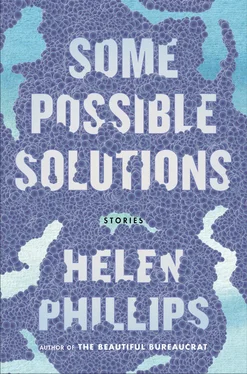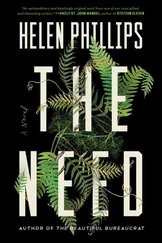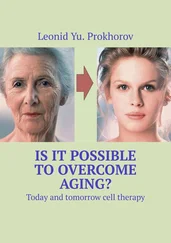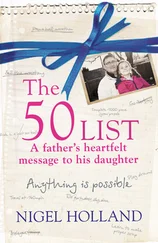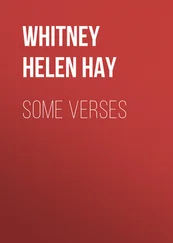“You don’t?” he gasped, suspended between joy and confusion. “You mean you changed your—”
Poor Tem.
“I got it,” I said, before he could go too far down that road. “I got it, and then I got rid of it.”
He stared at me, waiting.
“I mean, after memorizing it.”
I watched him deflate.
“Fuck you,” he said. “I’m sorry, but fuck you.”
“Yeah,” I said sympathetically. “I know.”
“You do know!” he raged, seizing upon the word. “You know! You know!”
He was thrashing about, he was so pissed, he was grabbing me, he was weeping, he half-collapsed upon me. I navigated us down the hallway to the old couch.
When he finally quieted, he was different. Maybe different than he’d ever been.
“Tell me,” he calmly commanded. His voice just at the threshold of my hearing.
“Are you sure?” I said. My voice sounded too loud, too hard. In that moment I found myself, my insistence on knowing, profoundly annoying. Suddenly it seemed quite likely that I’d made a catastrophic error. The kind of error that could ruin the rest of my life.
Tem nodded, gazed at me.
I got wildly scared; I who’d so boldly sought knowledge now did not even dare give voice to a date.
Tem nodded again, controlled, miserable. It was my responsibility to inform him.
“April 17—” I began.
But Tem shrieked before I could finish. “Stop!” he cried, shoving his fingers into his ears, his calmness vanished. “Never mind! Don’t don’t don’t!”
“ OKAY! ” I screamed, loud enough that he could hear it through his fingers. It was lonely — ever so lonely — to hold this knowledge alone. April 17, 2043: a tattoo inside my brain. But it was as it should be. It was the choice I had made. Tem wished to be spared, and spare him I would.
2.
It was an okay life span. Not enough — is it ever enough? — but enough to have a life; enough to work a job, to raise children, perhaps to meet a grandchild or two. Certainly abbreviated, though; shorter than average; too short, yes; but not tragically short.
And so in many ways I could live a life like any other. Like Tem’s. I could go blithely along, indulging my petty concerns, lacking perspective, frequently forgetting I wasn’t immortal. Yet it would be a lie if I said a single day passed without me thinking about April 17, 2043.
In those early years, I’d sink into a black mood come mid-April. I’d lie in bed for a couple of days, clinging to the sheets, my heart a big swollen wound. Tem would bring me cereal, tea. But after the kids were born I had no time for such self-indulgence, and I began to mark the date in smaller, kinder ways. Would buy myself a tiny gift, a bar of dark chocolate or a few daffodils. As time went on, I permitted myself slightly more elaborate gestures — a new dress, an afternoon champagne at some hushed bar. I always felt extravagant on that day; I’d leave a tip of thirty percent, hand out a five-dollar bill to any vagrant who happened to cross my path. You can’t take it with you and all that.
Tem tried hard to forget what he’d heard, but every time April 17 came around again, I could feel his awareness of it, a slight buzz in the way he looked at me, tenderness and fury rolled up in one. “Oh,” he’d say, staring hard at the daffodils as I stepped through the door. “That.”
I’d make a reservation for us at a fancy restaurant; I’d schedule a weekend getaway. Luxuries we went the whole rest of the year without. Meanwhile, my birthday languished unnoticed in July.
Tem would sigh and pack his overnight case. We sat drinking coffee in rocking chairs on the front porch of a bed-and-breakfast on a hill in the chill of early spring. Tem was generous to me; it was his least favorite day of the year, but he managed to pretend. We’d stroll. We’d eat ice cream. Silly little Band-Aids.
My life would seem normal — bland, really — to an outside observer, but I tell you that for me it has been rich, layered and rich. I realize that it just looks like 2.2 children, an office job and a long marriage, an average number of blessings and curses, but there have been so many moments, almost an infinity of moments — soaping up the kids’ hair when they were tiny, walking from the parking lot to the office on a bird-studded Friday morning, smelling the back of Tem’s neck in the middle of the night. What can I say. I don’t mean to be sentimental, but these are not small things. As the cliché of our time goes, The deeper that sorrow carves into your being, the more joy you can contain . This is no time to go into the ups and downs, the stillbirths and the car accident and the estrangement and what happened to my brother, but I will say that I believe the above statement to be true.
April 17. I’d lived that date thirty-one times already before I learned about April 17, 2043. Isn’t it macabre to know that we’ve lived the date of our death many times, passing by it each year as the calendar turns? And doesn’t it perhaps deflate that horror just a bit to take the mystery out of it, to actually know , to not have every date bear the heavy possibility of someday being the date of one’s death?
I do not know the answer to this question.
April 17, 2043. The knowledge heightened my life. The knowledge burdened my life. I regretted knowing. I was grateful to know.
I’ve never been the type to bungee jump or skydive, yet in many small ways I lived more courageously than others. More courageously than Tem, for instance. I knew when to fear death, yes, but that also meant I knew when not to fear it. I’d gone to the grocery store during times of quarantine. I’d volunteered at the hospital, driven in blizzards, ridden roller coasters so rickety Tem wouldn’t let the kids on them.
But December 31, 2042, was a fearful day for me.
“Are you okay?” Tem said after the kids had gone home. We’d hosted everyone for a last supper of the year, both children and their spouses, and our son’s six-month-old, our first grandchild, bright as a brand-new penny. At the dinner table, our radiant daughter and her blushing husband announced that they were expecting in August. Amid the raucous cheers and exclamations, no one noticed that I wasn’t cheering or exclaiming. The child I’d miss by four months. The ache was vast, vast. I couldn’t speak. I watched them, their hugs and high-fives, as though from behind a glass wall.
“Oh god, Ellie,” Tem said painfully, sinking onto the couch in the dark living room. “Oh god.”
“No,” I lied, joining him on the couch. “Not this year.”
Tem embraced me so warmly, with such relief, that I felt cruel. I couldn’t bear myself. I stood up and, unsteady with dread, limped toward the bathroom.
“Ellie?” he said. “You’re limping?”
“My foot fell asleep,” I lied again, yanking the door shut behind me.
I stood there in the bathroom, hunched over the sink, clinging to the sink, staring at my face in the mirror until it no longer felt like my face. This would become a distasteful but addictive habit over the course of the next three and a half months.
Aside from the increasing frequency with which I found myself falling into myself in the bathroom mirror, I got pretty good at hiding my dread. From Tem, and even, at times, from myself. We planted bulbs; we bought a cooler for summer picnics. I pretended and pretended; it felt nice to pretend.
Yet when Tem asked, on April 10, what I’d planned for this year’s getaway, the veil fell away. Given the circumstance, I had — of course — neglected to make any plans for the seventeenth. Dread rushed outward from my gut until my entire body was hot and cold.
Читать дальше
